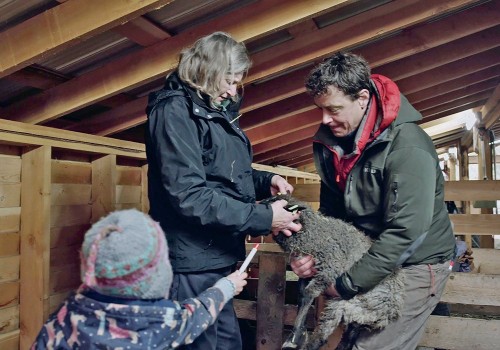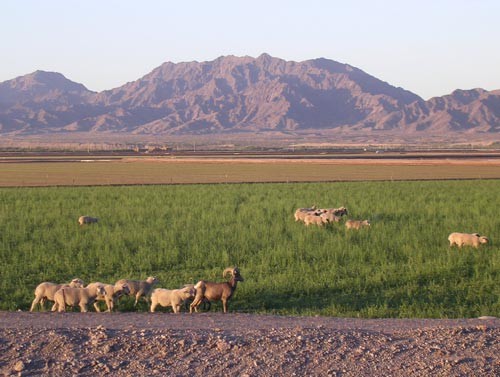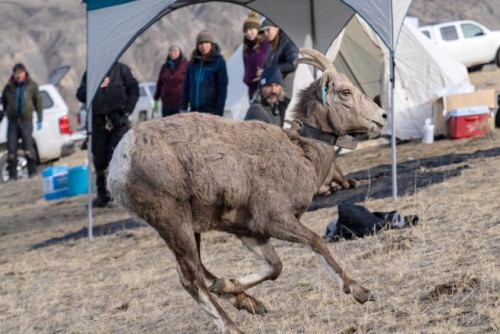Lethal bacterial disease found in bighorn sheep herd in B.C.'s South Okanagan
The contagious disease has already wiped out 80 per cent of a herd of bighorn sheep near Clinton, B.C.
A B.C. conservation group is worried about a herd of California bighorn sheep after a lethal bacterial disease was identified in two lambs in a herd of sheep near Penticton in the Okanagan.
The bacteria can cause pneumonia in both domestic and wild sheep and goats, but it is particularly harmful to wild sheep herds, according to the B.C. Wild Sheep Society.
"It's a little grim," said Chris Barker, a project chair with the society.
"You will see some lambs with some snotty noses and diarrhea and they are very lethargic and then potentially they will die from pneumonia."
The contagious disease can infect a wild sheep herd if the animals come into contact with domestic sheep that carry the bacteria.
A herd of bighorn sheep near Clinton, northwest of Kamloops in B.C.'s southern Interior, has been reduced by 80 per cent after contracting the disease in 2013.
The Ministry of Environment has classified California bighorn sheep on the "blue list," which means they are of "special concern," but not endangered.
In 1998, a population estimate put their number at about 10,000 province wide.
Separating domestic and wild sheep herds is key to the survival of bighorn sheep, an animal that is featured on B.C.'s coat of arms.
'We could be in the same situation that we are with caribou'
Barker is worried about the future of the remaining wild herds in B.C. and is calling on the provincial government to to protect wild sheep herds by keeping domestic animals away from them or eradicate the disease in domestic herds.
"Potentially we could be in the same situation that we are with caribou — in a reactive situation where we are trying to do private breeding pens or trying to get stock from somewhere else," he said.
"If people like to view wildlife please write a letter to the minister of agriculture or your MLA and tell them you want some action on this issue."
In an email a spokesperson with the Ministry of Forests Lands, Natural Resource Operations and Rural Development said staff and the Okanagan Nation Alliance are working to conduct further diagnostic testing on the wild sheep herd to determine the extent of the disease.
Staff are also identifying domestic sheep and goat producers in the area to inform them of the situation and potentially test sheep that may be sick, according to the spokesperson.
The ministry said full recovery is rare after a pneumonia outbreak in bighorn sheep. However the Okanagan herd has rebounded before from the disease after an outbreak 20 years ago reduced the herd from 400 animals to fewer than 150.


